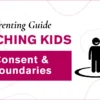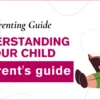Is homeschooling legal?
It depends on which country you live in. You will need to check the official position of your local government. In some countries, it is legal, in others it is not, and some countries are ambiguous in their position towards homeschooling. The best place to find an answer to this question is your country’s official department of education website.
Should my children be registered with the Department of Education?
It depends on the country you are living in. Check with your local education department on the correct legal procedure to begin homeschooling in your community.
What do I need to homeschool my children?
A goal, a plan, an understanding to homeschooling, a syllabus, a learning area, fulfilment of legal procedures, stationary, books, patience and determination.
Do I need to be qualified to homeschool?
No, but you will need an open mind and to be willing to keep learning and growing with your children. If it boosts your confidence, study a short course in teaching methodology and child psychology before starting.
Where do I find a curriculum to homeschool?
Speak to local homeschooling families. Any curriculum can be useful. Homeschooling organizations or online bookstores like Amazon can also suggest a good syllabus. If you dont find any, just visit any book store located near and select from the books available. You may want to experiment with multiple syllabi until you find one that works for your family.
Is there an accredited homeschooling curriculum that has the approval of the Department of Education?
It depends on which country you live in. Speak to local homeschoolers for advice on this issue. Most countries in which homeschooling is legal are pretty flexible on the issue of which syllabus you follow.
What does homeschooling cost?
There is no set cost for homeschooling. Usually, it should cost less than conventional schooling. But this depends greatly on the style of homeschooling you choose, the cost of textbooks, and the hobbies your child pursues. Through homeschooling, you generally save on school fees, but you end up spending on extracurricular activities, stationary, books, and family outings. Each family should set their budget and set up their homeschool within that budget.
How will I know if my children are learning?
Children are learning all the time, whether we assess it or not. How did your child learn to walk or talk? Did you have to set a curriculum and follow any structure? Learning is one of the most natural parts of being a child and if daily effort is put into education, then a child will definitely learn and grow. The easiest way to see how much your child has learned is to compare your child to how much he knew three months ago. You will be amazed by how much your child has learned each day, both in the homeschool environment and on her own.
What about tests and assessments?
This depends on your personal philosophy. For unschoolers, tests are something they don’t even consider or bother with. I agree with this way of thinking. Exams and tests train us to memorize facts in our short-term memory to pass the test and get good grades. We often forget whatever we learned after the test and sometimes even before it. These tests do not measure how much we truly have learned of skills and knowledge that will benefit us in life. That kind of knowledge cannot be tested.
If you follow a structured form of learning and a set curriculum or register through a correspondence college, then tests and exams will be done either at centers or at home under your supervision. However, if you choose a more radical form of homeschooling like us, you will find tests unnecessary and superficial like we do.
What if my child needs to learn something that I can’t teach?
Children who are accustomed to homeschooling are usually more independent learners who, over time, find ways to learn things without adult supervision. Even so, we live in a time in which information is so easily accessible.
If you don’t know something, you can Google it, you can Google ways to teach it to a specific age group, you could hire a tutor, you could call a friend with experience in the area to explain it to them, or you could enrol them for a private class in that topic. There are so many ways to deal with this in the internet age that it isn’t even a real concern for most homeschooling parents these days.
Will my child be able to get a matric or school-leaving certificate?
Yes, there are many ways to get this in countries in which homeschooling is legal. In such countries, there are correspondence colleges which cover High School, homeschooling organizations that provide exams, entry exams for university, and part-time registrations for High School.
Find out what options are available in your country and you will see that there isn’t anything to worry about. Your children will be able to complete High School just like other children, and they might even end up completing it sooner than other children too as it happened in our case.
Will my child be able to go to college or university?
Yes, in fact, many of the leading universities around the world favour homeschooled children over those enrolled in public schools as they tend to be more mature, self-disciplined, and accustomed to research and teaching themselves, all qualities that are needed in a university environment.
What if my child doesn’t want to study further after homeschool?
That’s something you’ll have to figure out together as a family. Some parents have no issue with it. Through homeschooling, we want to teach them the necessary skills to become entrepreneurs and make their own money. Ideally, they should be ready to start their businesses and not need college degrees, but if they want one, we would encourage them to pursue it. The world is moving in a direction in which degrees are becoming less necessary for earning well, so giving them skills is more important than getting degrees.
How much time does homeschooling take?
That depends on you and your children, but it is far less than how much time they spend in schools. Remember that in schools teachers have to cater to classes with many students with different levels of understanding, intelligence, and motivation. This means it takes much longer to teach a lesson than necessary.
When homeschooling, you will find your child doing an hour’s lesson in a few minutes and sometimes a week’s worth of math in a day. They are not bound by the constricting flow of a classroom. On average, I would say you will need the following amount of time for homeschool:
Preschool an hour or 1 hour a day
Grades 1-6 – 2-3 Hours a day
Grade 7 onward-5 hours a day
That’s it, really. We start homeschool at 9am, sometimes even at 10am, and rarely go past 12pm, and we get a lot of work covered in those two or three hours. It is actually far less time-consuming than regular school, giving children more time to be children and to have fun.
This thought is referring to time dedicated to structured learning of academic subjects like English, math, and science. In reality, we believe children are learning all day long through their play, games, exploration, questions, and reading.
So there is actually a lot more learning happening in a day, but most of it is natural and unstructured. The structured learning lasts just a few hours, and I believe that is all that is really needed.
Can I work if I am homeschooling?
Yes, many working parents homeschool their children, there are many ways to do this. If you work from home, it is easiest but even if you are away at work, there are ways to make it work.
Remember that with homeschooling, you do not necessarily have to school them in the mornings, so if you work all morning, you could school them in the afternoons or evenings and let them enjoy their mornings instead.
There are many ways around it if you get creative. One of my friends even schools his kids via Skype while he is out of town on business.
What do children play sports and other extra-curricular activities while homeschooling?
It will now be on you to organize this for your children. You will have to seek out local sporting and extra-curricular opportunities for your children, and it will likely be more costly as it wouldn’t be covered under school fees or with school discounts.
Most communities do have a variety of such options available locally (like playgrounds in societies), you just need to seek them out and be ready to drop off and pick up your kids from each place. The main thing to keep in mind is your budget as it can get quite expensive if you have them enrolled for many different activities.
We always found the question about socialization amusing. It is the first thing people mention when you bring up homeschooling, even though when we went to school, nobody told us that they were sending us there to socialize. I always thought of it as a place of learning. I believe that school socialization is overrated and fake. Children learn to socialize by living life, not by being placed in a classroom and forced to sit quietly for hours and learn.
We believe that properly homeschooled children are far more sociable because they are accustomed to dealing with people of all ages, not just other kids their age. Yes, if you lock them up in the house and don’t let them interact with anybody outside your family, this will affect them negatively. But that isn’t what we are promoting or what most homeschooling parents do. Rather, homeschooled children travel with their parents, interact with adults and children of all ages, and are a part of the real world long before those in schools. So don’t worry about socialization; it isn’t something that children need to be taught; it comes naturally to all human beings.
What about homeschooling preschoolers?
Preschoolers are the easiest to homeschool in that there isn’t much that you need to teach them at that age, and they learn primarily through play. Our method is to just have half an hour of sit-down work time with a pre-schooler, focusing on English and Maths, and then to leave them to enjoy the variety of educational toys, games, and videos we have purchased for them.
We didn’t need to teach our children the alphabet or their numbers because they learned it at that age through videos and games. They also picked up a lot of vocabulary and science from these. We believe this is the best way to teach children at that age.
Let them play and be kids, and once a day, they will sit down with a book themselves for half an hour and ask you to teach them. That is all the academic learning they need at that age.
What if we want our child to go back to school?
Most schools have an entry test to determine which grade your child is suitable for, so this wouldn’t be a problem. As long as you keep records of what you have been teaching them and what level studies they have completed, most schools will readily accept them to the appropriate grade after an entry test.
I’m not very organized. Will I be able to homeschool successfully?
There is no one way of homeschooling, so it is really up to you to find a way to make it work. Our style is also not very organized because we are also like any ordinary family. We are sure there are many families out there who homeschool effectively without being organized. This is part of the fun of homeschooling; it’s your home and your rules, so find a style that suits your lifestyle. Hint: Unschooling may be just right for your family.







